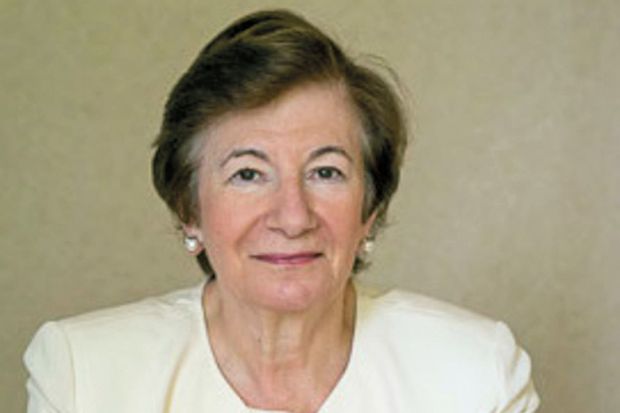Hundreds of hate speakers have been allowed to speak at UK universities in recent years while “lawful speech” on controversial topics has been shut down, a parliamentary inquiry into freedom of speech on campus has been told.
At a hearing of the Joint Committee on Human Rights on 17 January, Baroness Deech told MPs and peers that “unlawful speech” was happening on UK campuses and “is not stopped”, with “racial and religious hatred often [being] served up under the guise of criticism of Israel”.
Lady Deech, the former head of the Office of the Independent Adjudicator for Higher Education, the sector’s complaints ombudsman, had claimed in her written evidence to the committee investigating free speech on campus that “universities, in ignorance of the law, were both permitting unlawful speech and [being] complicit in blocking lawful speech” on campus.
But the cross-bench peer, who was previously principal of St Anne’s College, Oxford, went further in her oral evidence by stating that “hundreds of extremist speakers are arriving on campuses all over the country and not being stopped”.
She said that she could name “at least half a dozen well-known terrorists” who had been at university just before they committed atrocities, including Salman Abedi, the Manchester Arena bomber, who attended the University of Salford, and the Isis executioner Mohammed Emwazi, known as Jihadi John, who graduated from the University of Westminster and was killed by a US air strike in 2015. In many of these cases, terrorists “became more radicalised” after attending student societies while at university, Lady Deech claimed.
“There is no doubt that at least half a dozen well-known terrorists did their jobs just after they left university,” she said, adding that “universities should have removed that hatred from them”.
Lady Deech also claimed that several academics had been silenced for voicing ideas that were not politically correct.
“At the other extreme, lawful speakers are being stopped…including anyone who trespasses into forbidden territory such as the London School of Economics lecturer who wanted to talk about welfare in a way that was not deemed acceptable,” she said, referring to Adam Perkins, a King’s College London researcher, whose situation was highlighted by Spectator columnist Toby Young as an example of “liberal McCarthyism” after a scheduled talk at the LSE was postponed over safety fears in 2015.
Dr Perkins, whose book The Welfare Trait was accused of promoting eugenics, later addressed an audience at the LSE, where his work was branded unethical and substandard by an LSE academic.
However, Jonathan Rosenhead, an emeritus professor at the LSE, told the select committee that limitations on free speech in universities were “already excessive”, particularly in relation to discussions around Israel and Palestine, which were treated as an “exception” in regards to free speech.
Addressing the panel, Alison Scott-Baumann, a professor at Soas, University of London who has researched the government’s anti-extremism programme Prevent, said that universities were “doing well” in terms of balancing the twin demands of protecting free speech and shutting down unlawful hate speech.
“Sometimes it goes wrong, but universities and student officers are capable at [walking] this tightrope,” she said.




